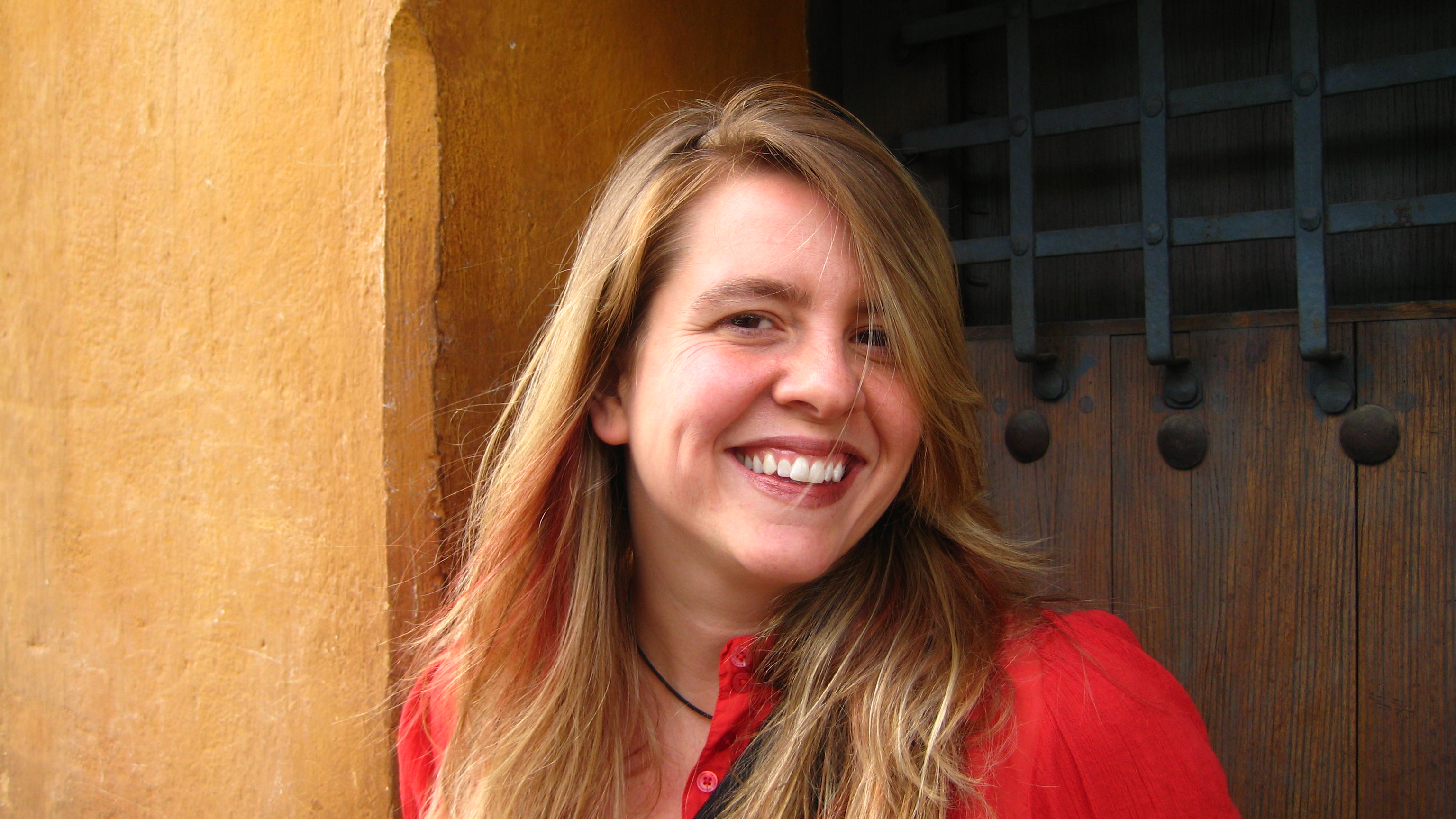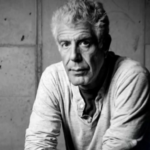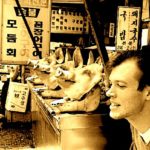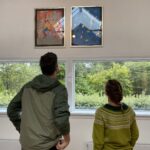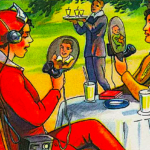Alden Jones is the author of The Blind Masseuse: A Traveler’s Memoir from Costa Rica to Cambodia and the forthcoming story collection Unaccompanied Minors (New American Press, 2014), winner of the New American Fiction Prize. She has lived, worked, and traveled in over forty countries, including as a WorldTeach volunteer in Costa Rica, a program director in Cuba, and a professor on Semester at Sea. Her travel writing and short stories have appeared in AGNI, Time Out New York, Post Road, the Barcelona Review, the Iowa Review, Prairie Schooner, The Smart Set, Gulf Coast, the Best American Travel Writing, and NPR’s Cognoscenti. She teaches creative writing and cultural studies at Emerson College in Boston.
How did you get started traveling?
It started with Spanish. Foreign language classes at my school started in 5th grade, and I just took to the language. At some point in middle school I found myself at a water park in Miami and I had an exchange in Spanish with someone who didn’t speak English. I was like, whoa, this secret code they’ve been teaching us actually works! This opened up the world for me and I became obsessed with traveling.
How did you get started writing?
The first thing I wrote self-consciously “as a writer” was the opening of a novel about unicorns. I was ten. I read a lot of Madeleine L’Engle and it was modeled after A Wrinkle in Time. I got about seventy-five hand-written pages in before the fire died, but once I’d done that I was pretty sure I could someday write a book. It only took me thirty years…
What do you consider your first “break” as a writer?
While I was in grad school at NYU I worked in the program office, and one of my tasks was to sort the mail. One day this slim magazine arrived in the pile. It was a literary magazine called Grand Tour: A Journal of Fine Travel Writing. This was 1996, before Barnes & Noble had entire shelves devoted to travel literature, and it seemed revolutionary to me that travel writing had a place in the literary world. I wrote something specifically for the magazine and the editor, Jason Wilson, took it right away. Grand Tour folded before the story came out, but Jason found another home for it, and then successfully nominated it for the first edition of Best American Travel Writing, edited by Bill Bryson. Which is, incidentally, where I first discovered the work of Rolf Potts! Suddenly I was a “travel writer,” and doors opened much more easily after Best American.
As a traveler and fact/story gatherer, what is your biggest challenge on the road?
Gathering facts can be fun like a scavenger hunt, and it can be tedious. It’s easiest when I’m on an assignment that is just about the assignment. There’s also always the pressure to meet a “character” or have a funny anecdote to tell.
What is your biggest challenge in the research and writing process?
Starting.
What is your biggest challenge from a business standpoint?
Getting editors to respond to pitches.
Have you ever done other work to make ends meet?
Oh, certainly. I don’t know anyone who doesn’t. Almost all of my commercial pieces have been funded by someone other than the magazine printing them. I used to work for an educational travel company, and I would tack extra days onto trips I did for them or take a few hours here and there to research pieces related to the country I was in. I teach. I will always teach. Teaching is not only how I “make ends meet,” but how I make sure to stay social and connected.
What travel authors or books might you recommend and/or have influenced you?
A sleeper travel memoir I highly recommend is Laura Fraser’s An Italian Affair. I have read Paul Bowles’s travel novel The Sheltering Sky
at least five times. My favorite edition of the Best American Travel Writing is the 2004 edition
edited by Pico Iyer — that one really shows you the elasticity of the genre. And probably one of the most important travel books is Joseph Conrad’s Heart of Darkness
.
What advice and/or warnings would you give to someone who is considering going into travel writing?
Take tons and tons of notes, even if you’re not sure you’ll use them. Write down the prices of things, street names, and short bios of people you meet. All the things you think you will remember you will forget. And train yourself in narrative — learn how to tell a story.

